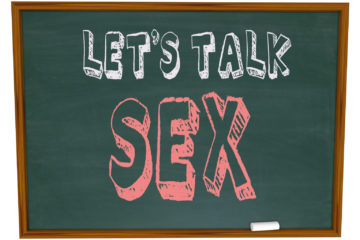I have learned from working with hundreds of people that low libido is the bodies natural response to stressors that are going on with the individual or in the relationship.
We don’t want to do something that causes pain, displeasure, can be boring, feels unsafe, causes frustration, is mechanical or takes a lot of effort. We are creatures who desire pleasure and comfort. We turn towards activities that make us feel better not worse.
If you have low libido ask yourself these questions:
- Are you satisfied with the sex that you are having?
- Are you aroused during sex?
- Do you find your mind drifting during sex to your to-do list?
- Do you wish it would get over quickly so that you could move on to something more exciting like watching Netflix?
- Are you bored with the same old routine?
- Do you have resentments towards your partner because of emotional needs unmet?
- Are you finding that you are no longer attracted to your mate?
It’s important to understand that most people are perfectly healthy and normal and that low sexual desire is generally due to life circumstances, stressors, and lack of self-awareness and not due to a true medical diagnosis. In my initial intake appointment I always check in with clients about exercise, work/life balance, vitamin deficiencies, and diet which can all affect hormones which regulate sexual desire. And, it is always good to check with your primary care provider to rule out any underlying health issues.
Once people understand that they are actually healthy and that their low libido is pointing towards a deeper need that is not being met the magic starts to happen.
I often tell people that they actually have no idea what their true libido is like!
I have seen people go from never wanting sex, not able to have orgasms, not having any type of sexual desire to wanting to have sex, having fulfilling orgasms, feeling arousal and desire, expanding their sense of themselves as a sexual being and falling in love with their partners all over again.
Some things that unfold during the process are:
- An understanding of how arousal actually works.
- Discovering true desires.
- Having a safe space to discuss sexual trauma or pain.
- An increase in honest and needed communication between partners.
- Fun and informative HomePlay exercises to try at home.
- Re-framing what is normal and what is not normal.
- Using mindfulness techniques to reduce stress and anxiety around sex.
- Permission to fully express their sexual desires.
- Becoming a team again.
I challenge you to begin right now to ask yourself those tough questions I listed above. Is this really a case of low libido or, are you not getting what you really need and desire?
Sometimes, we are so frustrated asking for our needs to be met over and over again that it’s easier to clam up and just accept the mediocre sex that we are having. That’s totally normal! Talking about sex is super duper hard. And, there are ways to transform these hurdles and learn how to communicate to get what you want and desire. It’s possible to turn your libido around!



0 Comments